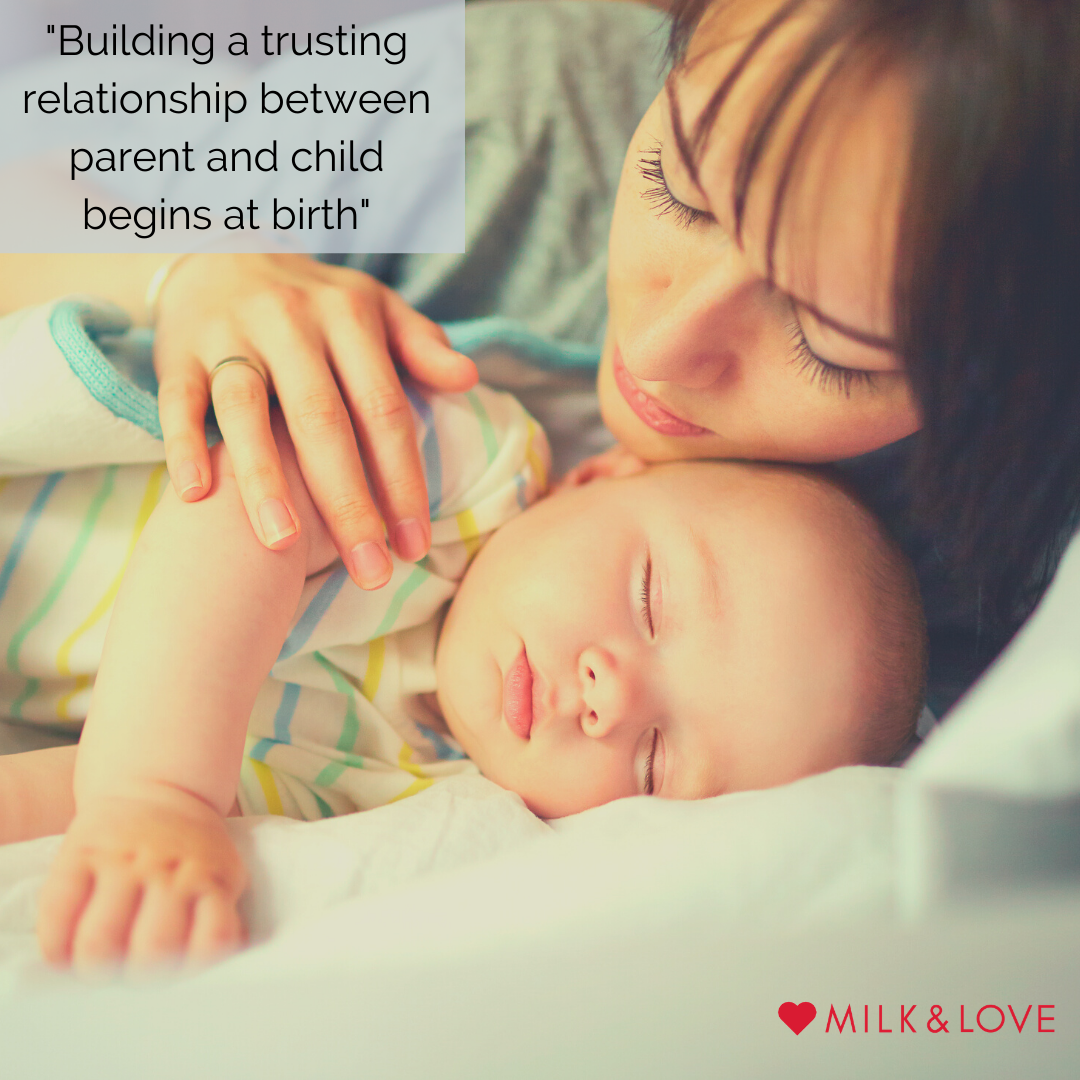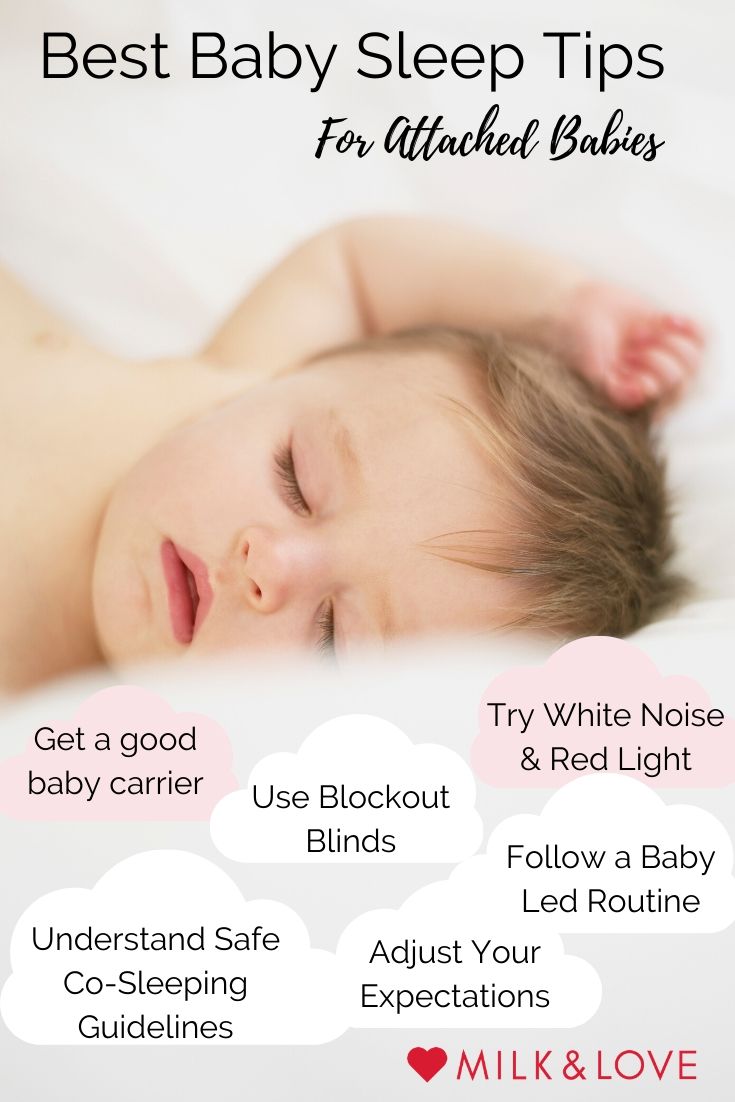6 Best Baby Sleep Tips For Attached Babies
Posted by Corryn Barakat on Dec 17, 2019
Your baby has spent 9 months in a dark, warm and safe environment. Protected from loud noises, with just the reassuring beat of Mum's heart. Transitioning to the world outside the womb can take some adjustment. Some babies will find the adjustment easy, and others will find it hard. Some babies fall asleep and stay asleep without any effort, whereas other babies find it hard to fall asleep, or hard to stay asleep, or in some cases, both.
My babies have all had trouble falling asleep and staying asleep. As a light sleeper with an active mind myself, I can sympathise and believe that much of their sleep habits are genetic. The first GP I ever visited suggested giving my 2 week old firstborn baby a bottle of formula at bedtime to help them sleep (no thanks!), the 2nd GP suggested testing poo samples for lactose intolerance (collecting said samples is NOT fun and was thankfully not the problem). The 3rd GP told me my baby was just fussy and to try letting him cry it out (not consistent with my parenting style) and the 4th told me that if I was a teenage mum I'd just get on with it and stop making a fuss.
Suffice to say I didn't find any of that advice useful or reassuring. There was also a big movement at the time to cry it out or controlled crying. This wasn't something I was comfortable with, so I continued to look elsewhere.
I read books on baby sleep, I walked miles with a sleeping baby in a baby carrier, and I spent weeks with a baby sleeping on me. At the end of it all I did survive. It was a (loooong) stage, and my children are now fabulously deep sleepers that go to bed early, sleep all night long, and wake up bright and (mostly) happy!
I am comfortable with the choices I made and feel that building a trusting relationship between parent and child begins at birth.

There are some Natural Sleep Remedies that I picked up that made a difference for us, and that fit with our attachment & gentle parenting philosophy I hope you find them useful too!
Here are the Best Baby Sleep Tips for Attached Babies:
1. Get a Good Quality Baby Carrier
When your baby is a valcro baby, sometimes it's easiest to go with the flow and take baby for a walk in the baby carrier to fall asleep and stay asleep. I prefer using a Ring Sling or similar unstructured carrier for babies under 3 months, and then a structured carrier like an Ergo for babies over 3 months. Ideally the structured carrier should be able to go on your back so that as baby gets older (and heavier), you can move them to your back for a more ergonomical carry. Also, remember to get good shoes! Sneakers or some other supportive footwear will save your back!
2. Try using White Noise and Red Light to create Sleep Cues
I use the Aroma Snooze Diffuser to create a sleep inducing environment for baby. I use the rain white noise setting, the intermittent diffusing of Aroma Snooze Essential Oil (when baby is over 3 months), and I set the light to the deepest darkest red.
The Benefits of the Aroma Snooze include:
- The white noise helps to drown out any other household noises so baby is less likely to wake up
White noise is one of the secret weapons of sleep! You can use it to help baby stay asleep, but also as a cue for sleep. If you use it at nap time and bed time every day then over time (several weeks), baby starts to associate the white noise with sleep time which makes it easier to fall asleep. A baby sleep study done in 1990 found that using white noise helped babies fall asleep within 5 minutes (80% of babies vs 25% in the control group).
Remember that your baby has very sensitive hearing. Your white noise should not exceed 50 decibels and should be at least 200cm away from baby. Trial reducing the volume over time so the noise is very soft (and eventually remove it altogether as baby gets older). You can download a free app on your phone to measure the decibels.
Finally, not all babies like white noise! If it isn't working, that's ok. Perhaps your baby prefers silence or light music.
- You can set the light to a deep red, or cycle through reds and oranges.
Many night lights on the market use white, blue or green light which can inhibit melatonin (the 'sleep' hormone). Studies have shown that red light can actually help increase melatonin production, so it is great to have at night.
I prefer to set the light to the deepest red because I don't like having light in the bedroom, and I find cycling through colours is not helpful for my own sleep, however I do like cycling through all the colours during the day if I'm using the diffuser in another room.
- You can use the diffuser to add a relaxing scent to the air
There are many benefits to having a diffuser in babies room. When your baby is a newborn we recommend using only water ( no essential oils) to help humidifying and negative air ionising. Once baby is over 3 months you can add a small amount of essential oil such as the Child Calming or Aroma Snooze to help baby relax at nap time. Using the same smell at every nap and bedtime also helps to develop cues that it is sleep time.
- It is easy to take with you on holidays
We went on holidays recently and it was easy to pack the Aroma Snooze back into the box and take it with us. It does need to be plugged in, but it is fairly easy to find a power point in a holiday apartment! This makes it easy to maintain the same sleep cues no matter where you are.
3. Block out Blinds on your bedroom windows
This is really something I highly recommend doing before having a baby. The more light you can block out the easier it is for nap time (and sleeping in in the morning!). My kids still wake up by 5am most days, but it's better than 4am! It should be noted that you'll need to add block out blinds on any rooms you children will sleep in. For us it includes our bedroom as our kids often sleep with us.
4. Use a Baby Led Routine to help set Baby's Body Clock
One of our game changing adjustments was to identify when baby was getting tired and create a nap schedule around those times. Over time baby's body clock grew to expect a nap at around the same time every day, and would naturally get sleepy and more easily fall asleep. This happened for us at about 6 months, and the nap times changed at different times as baby developed.
Once we'd identified the routine we did EVERYTHING to make sure baby fell asleep and stayed asleep for as long as possible at around the same time every day. For my most sensitive child this meant we had to be home for most naps, and he had to sleep attached to me.
Improving the nap time sleeps during the day had an incredible impact on night time sleep. I think it is because when some babies get over tired or over stimulated their little minds are so busy processing all of the information that they wake up more through the night. Possibly a good routine also helped calm everyone down, and a calmer household meant a calmer baby.
5. Understand the Safe Co Sleeping Guidelines
Breastfeeding mothers are biologically designed to fall asleep when breastfeeding their babies at night. There is a delicate play of hormones that help you to fall back into a deep sleep after breastfeeding. This can mean that you end up co-sleeping, even if you don't plan to (it is safer than falling asleep on the sofa with your baby). Make sure you understand the safe co-sleeping guidelines so that if it happens, it happens safely.
6. Adjust your expectations (and remember that this too is just a stage!)
Half of the problem with baby sleep is our own expectations and stress over what our baby 'should' be doing. I found that removing the clocks from our bedroom, and accepting my new reality was what really made a turning point for us. It is normal for breastfeeding babies to wake at night for feeding, for cuddling, and to be reassured that mum is nearby. It is also normal for baby to want to be attached to an adult for safety and security. They will grow out of this stage, I promise!
Did you have an Attached Baby? What sleep tips worked best for you?
About the Author
Corryn is a lover of coffee, hugs and sunshine. Mum of 3 and founder of Milk and Love, Corryn loves chatting to new mums and pregnant mums. She has extensive breastfeeding experience, and is an advocate for gentle parenting, cosleeping and looking after Mum's mental health... read more about Corryn here




